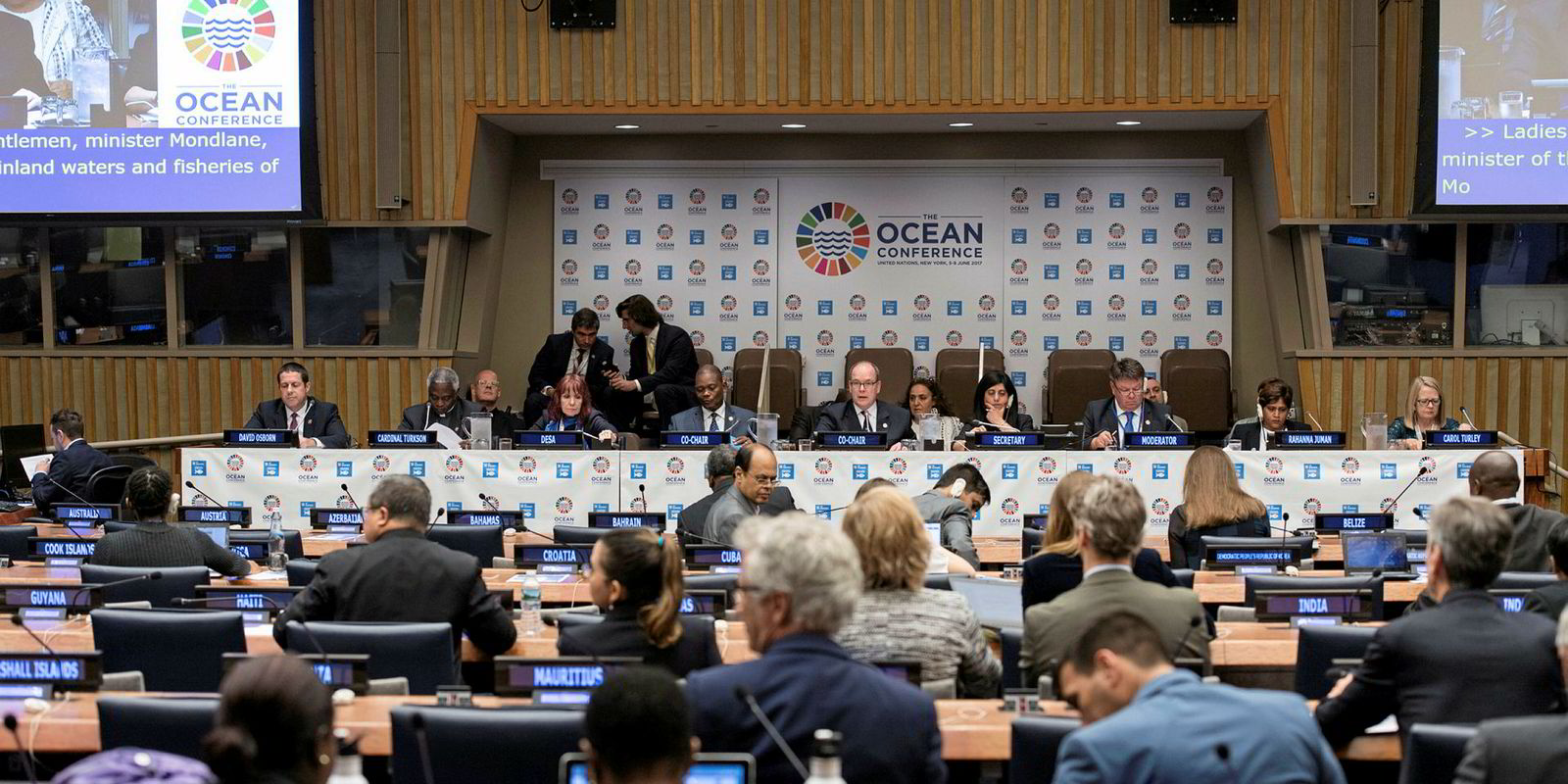The International Chamber of Shipping's delegate to the United Nations Ocean Conference has highlighted the group's carbon dioxide proposals as a step to help solve ocean acidification.
Simon Bennett, the trade group's director of policy, told the conference that developing nations should not be concerned that the ICS's efforts to persuade the International Maritime Organization to promulgate CO2 reduction targets will put a damper on trade or economic development.
"We would like to highlight that while we are committed to ambitious CO2 reduction objectives, we are not proposing a binding cap on CO2 emissions," he said.
The UN organised the Oceans Conference as a forum for boosting its Sustainable Development Goal 14, which focuses on conservation and sustainable use of oceans.
Reducing ocean acidification, to which CO2 emissions are a contributor and which are blamed for a environmental harms, is one of several parts of the goal.
But the conference is being held in the wake of US President Donald Trump's decision to pull out of the Paris agreement on climate change, which also targets CO2 emissions reductions.
"Ocean acidification threatens the survival of many marine species, and many whose lives are dependent on marine resources," said Tuvalu Prime Minister Enele Sosene Sopoaga.
The ICS is seeking to persuade the IMO to adopt aspirational objectives that would seek to bring CO2 emissions below 2008 levels as a first step, followed by an as-yet-decided target by 2050.
Non-binding
But the proposal stops short of calling for binding consequences for not meeting those goals.
Bennett pointed out that shipping actually has a positive story to tell, after cutting CO2 emissions by more than 13% between 2008 and 2012.
"However, we recognise that society expects even more, and that there is a perception, however incorrect, that international shipping may have somehow escaped the Paris agreement," he said.





